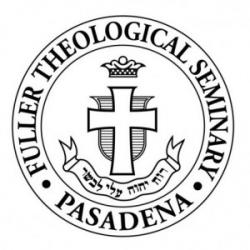By Reed Metcalf
I like to revisit books years after having read them and see how my opinions have changed or how a specific tome influenced me. On a whim one recent morning, I picked up a copy of a book from ages past and started flipping through it. I first read the book in my sophomore year of college some eight or nine years ago, and though I have never really picked it up since, it had a profound impact on me and fueled my fire to get to seminary and dig into academic study of the Bible.
As I flipped through the endnotes—laughing as I remembered not knowing the first thing about biblical studies at my first reading—I found a footnote that lauded and praised the works of one particular thinker. This was interesting, because this thinker would later denounce the book’s author in the strongest possible terms for a particular view point.
Now, I’ve heard from many folks that both the thinker and the author changed drastically before the falling out. I can believe both attestations, but neither is really the point.
My focus here is not on the author, the thinker, or their falling out. What I am concerned with is our tendency as Christians—liberal, conservative, Protestant, Catholic, Orthodox, progressive, fundamentalist, whatever—to rip each other to pieces over theological disagreements. I am guilty of this just as much as the next person. What is this about, though? How do we justify this, and where did this come from?
Why do we think it is acceptable to attack members of Christ’s Body?
It seems that our tendency to fight “heresy”—the boogeyman of the Christian faith—has become the rule of the day. Granted, there are times that this boogeyman materializes in terrifying and destructive ways (see the Crusades, 1-4, especially 4), but for the most part, things we want to deem “heresy” are not worth the verbal abuse we hurl at it. And here is the thing: we aren’t hurling abuse at an idea, but at the person who voiced that idea. Such was my case in point, with abuse leveled at the author instead of his thought or viewpoint. And this happens frequently. Yes, we engage theories, but often people get caught in the machinery of debate and get crushed in the process. We forget that these are people too, loved by God and a part of his body; our fixation on right-ness gets in the way, though, and we forget that Jesus never told us to be right in our thinking or shove right-ness on others.

He said, “Love each other. Just as I have loved you, so you also must love each other” (John 13:34).
It makes me wonder how all of us might change if we let one of the truths of the Gospels sink in: that it was not until after they had seen the Resurrected Christ in person that the Twelve really began to figure out that Jesus was a completely different Messiah from what they expected. The Twelve—and many others—seemed to be awaiting a militaristic deliverer, someone who would stain the sand with Roman blood as he won Israel’s freedom and reestablished the throne of David in the earthly kingdom of Israel. They had followed Jesus for years while being dead wrong about who he was. If the folks who followed Jesus around in the flesh for three years were still missing the big point about Jesus, maybe we can be humble enough to suggest that we do not and cannot completely understand the infinitely-vast and infinitely-incomprehensible God. If we admit that, maybe we can leave room for the family of God to disagree a bit—and even try to correct each other, maybe indefinitely disagreeing on certain things—without calling each other names and verbally beating each other to smithereens.
Because this seems to be God’s primary concern: the family remaining a family, the body not dismembering itself. Yes, Paul, John, Jude, and others wrote to combat specific ideas that threatened the early church, but James and Paul don’t excommunicate each other over different emphases of the Gospel. Paul confronts Peter to correct him (Galatians 2:11-14), but there is no name calling; 2 Peter will even commend Paul’s writing, though again there are different emphases in Pauline literature. Luke does not suggest the other accounts that he draws from and rearranges are wrong. There is room in the great love of God to disagree on non-central issues and not come to verbal blows over it. Because in a community made of Jew and Gentile, male and female, slave and free, rich and poor, Pharisee and tax collector, centurion and zealot, our first job is to love each other. Being right can come later.
Reed Metcalf works as a Media Relations and Communications Specialist at Fuller Theological Seminary. He writes for and curates the Fuller Blog and contributes regularly to FULLER magazine. He graduated with his MDiv from Fuller in 2014 and co-founded the Fuller Faith and Science student group. Reed and his wife Monica live in Pasadena, CA, where he is an ordination candidate in the Free Methodist Church. Follow him on Twitter at @reedmetcalf.
Follow Fuller Seminary on Twitter at @fullerseminary.
















